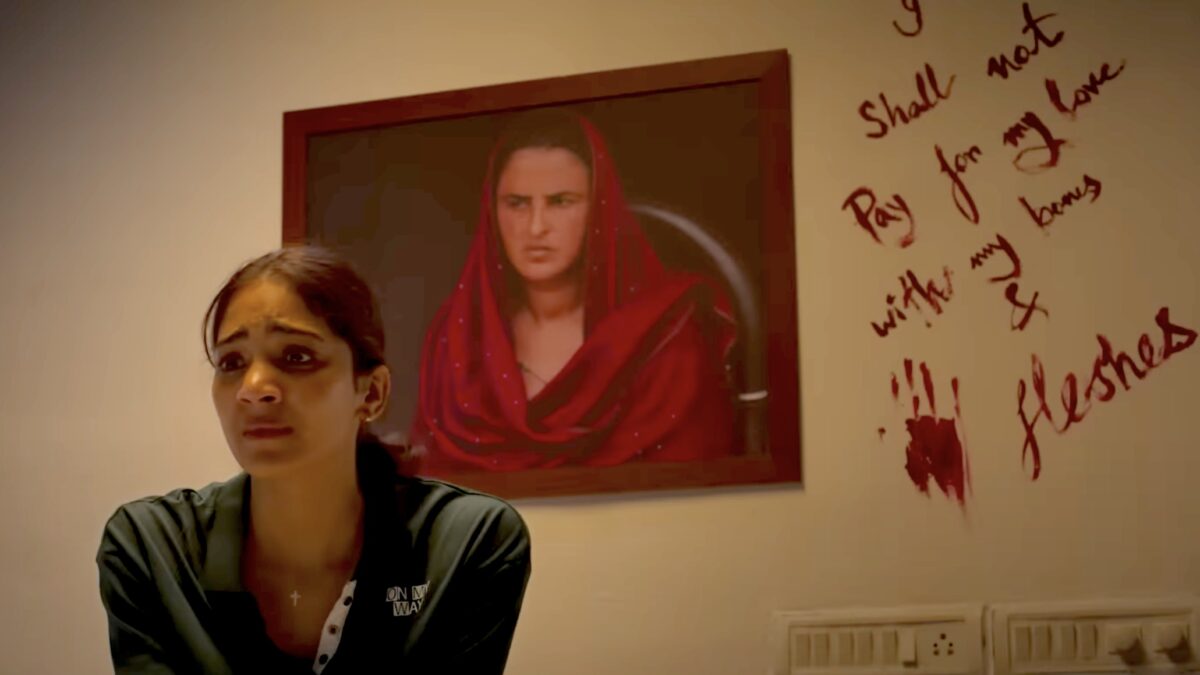The movie sparked controversies well before its release
Originally published on Global Voices

Screenshot from the official trailer of the movie “The Kerala Story” by Sunshine Pictures. Fair use.
Amid the Karnataka Legislative Assembly Election, “The Kerala Story,” a Hindi language film centred on the Indian state of Kerala, premiered on May 5. Directed by Sudipto Sen, this Bollywood movie explores the controversial notion of “love jihad” — a conspiracy theory propagated by right-wing Hindutva groups which claim Muslim men romantically target Hindu women to try and convert them. Following its release, the film quickly generated widespread controversy nationwide, with numerous critics accusing it of fostering hatred towards Muslims and perpetuating Islamophobia.
ISIS and ‘Love Jihad’
The movie film revolves around the story of three young women from different regions of Kerala who are studying nursing. These women convert to Islam and subsequently become radicalized, eventually joining the Islamic State (ISIS). Among them are a Hindu, a Christian, and a communist girl who initially shared their room with a girl named Asifa. However, it is revealed later in the movie that Asifa is an agent of ISIS. According to the film's narrative, Asifa is assigned to brainwash/influence non-Muslim girls and employs two young Muslim men to form romantic relationships with them. Eventually, these men convince the girls to convert to Islam and become fighters for ISIS, and then they are taken to Syria, where they become sex slaves.
The movie asserts that approximately 32,000 non-Muslim girls have so far been converted to Islam by means of Love jihad. Bollywood Actress Adah Sharma stars as Shalini Unnikrishnan, also known as Fatima, who recounts this story from a prison in Afghanistan, where she is held as an ISIS prisoner/fighter.
The movie sparked controversies well before its release, particularly in November 2022. During that time, a teaser for the film was unveiled, making the claim that, so far, approximately 32,000 girls had been abducted and converted to Islam to join ISIS. However, the movie fails to substantiate this figure, and in the latest teaser, the number is no longer mentioned. It is important to note that the claim of 32,000 is inaccurate and greatly exaggerated. In reality, it refers to the story of 25 girls who were radicalized and joined ISIS back in 2016.
Journalist Mohammed Zubair tweeted:
A MUST WATCH: A very well researched video based on available facts by @dhruv_rathee bursting the fake claims of the Propaganda movie ‘The Kerala Story’. Do watch and share the full video available on YouTube. https://t.co/0IdOzLUjK0 pic.twitter.com/y8sqEiIYy3
— Mohammed Zubair (@zoo_bear) May 11, 2023
The film's release coincided with the much anticipated Karnataka Legislative Assembly Election on May 10. Many suggested the movie was released intentionally at this time to polarise the votes in the politically significant state of Karnataka. However, this strategy apparently did not yield the desired results for the ruling Bharatiya Janata Party (BJP), as it lost in the Karnataka state election. It is worth noting that India’s prime minister and BJP leader Narendra Modi had also praised the movie at an election rally despite its misinformation.
K.T. Rama Rao, who is a cabinet minister of Telangana, posted on Twitter
Just the way Kerala Story failed to amuse people of Karnataka, similarly Karnataka election results will have NO bearing on Telangana
Thanks to the people of Karnataka for rejecting ugly & divisive politics
Let Hyderabad and Bengaluru compete healthily for investments &…
— KTR (@KTRBRS) May 13, 2023
Following its release, there was a widespread call from political leaders and governments to ban the movie. The West Bengal government led by Mamta Banerjee banned the movie in the state to maintain law and peace. However, the matter is still being weighed in court, and a final verdict is pending. Similarly, the Tamil Nadu government has also banned the movie within the state.
The movie has been endorsed widely by right-wing Hindu groups, political parties, and even prominent politicians affiliated with the ruling BJP in India. BJP-ruled Indian states Madhya Pradesh, Uttar Pradesh, Haryana, and Uttarakhand have declared the movie tax-free in their respective states.
In the northeast Indian state of Assam, The chief minister Himanta Biswa Sarma watched the movie along with all cabinet ministers and MLAs in the theatre. Furthermore, he encouraged all parents to watch the film together with their daughters.
In an op-ed on ForwardPress.in, expat Indian Neeraj Bunkar calls the movie “emotionally exploitative — with little respect for facts”:
The film employs content, tropes, mise-en-scene, and background score to sensationalize a particular issue and promote the agenda of mobilizing the majority. This approach is being utilized by right-wing organizations and parties in power to expand their presence.

Post a Comment